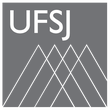Banca de DEFESA: POLYANNA ABREU CORRÊA TAVARES
Uma banca de DEFESA de MESTRADO foi cadastrada pelo programa.STUDENT : POLYANNA ABREU CORRÊA TAVARES
DATE: 14/07/2022
TIME: 14:00
LOCAL: Sala virtual através do link https://meet.google.com/egp-kqjr-uib
TITLE:
ORGANIC MATTER AND STABILITY OF AGGREGATES IN SYSTEMS INTEGRATION CROP LIVESTOCK FOREST SUBMITTED TO DIFFERENT TECHNOLOGICAL MANAGEMENT LEVELS
KEY WORDS:
Soil; soil physics; pasture; organic matter; aggregates; integration system
PAGES: 47
BIG AREA: Ciências Agrárias
AREA: Agronomia
SUBÁREA: Ciência do Solo
SPECIALTY: Manejo e Conservação do Solo
SUMMARY:
Different soil use and management practices can significantly affect soil attributes, especially physical ones. In this sense, it is necessary to develop management strategies that promote improvements in soil quality, in order to favor the growth and development of crops, increasing their efficiency and consequent sustainable productivity. The study was carried out at Fazenda Lagoa dos Currais – Curvelo/MG, in an area of 44 hectares, it was divided into four pickets of 11 hectares each, where four different levels of fertilization management and integration of agricultural components were established: level one (Standard Regional), level two (Improved System), level three (Intensified System) and level four (Potential Production), with one level for each paddock, compared with an adjacent cerrado control area. Technological levels progress according to technology, investment in soil improvement and establishment of more intensive systems, ranging from investments in fertility to the adoption of more advanced production technologies. Soil sampling was carried out before and after the implementation of the Technological Reference Unit (URT) at two different depths (0-10 and 10-20cm) for chemical, physical and soil organic matter characterization in the years 2017 and 2019. The aggregation indices determined were: the weighted mean diameter (DMP), the geometric mean diameter (DMG) and the aggregate stability index (IEA). The collection of material used for soil physics analysis was performed only once at the end of 2020, after three years of experiment establishment. A principal component analysis (PCA) was used to compare variables related to soil quality between the adopted management levels. Level three tends to have a greater positive influence on soil quality in the 0-10 cm layer, especially with regard to the accumulation of organic matter. The results indicate that depth, organic matter and fertilization were the most important indicators of soil quality, reflecting on the general quality of the soil. Based on the values obtained, level three is the most appropriate management of the integration system in this context, since it preserves soil quality at a lower cost than technological level four. It is worth noting that even after three years of evaluation, more studies need to be carried out in order to carry out a more accurate monitoring over time, especially in relation to the stability index IV of soil aggregates, which requires a longer time to have more expressive effects. related to changes in management
BANKING MEMBERS:
Externo à Instituição - RAFAEL DA SILVA TEIXEIRA - UFV
Interna - 3125822 - ALINE DE ALMEIDA VASCONCELOS
Presidente - 2415356 - ANDRE THOMAZINI



